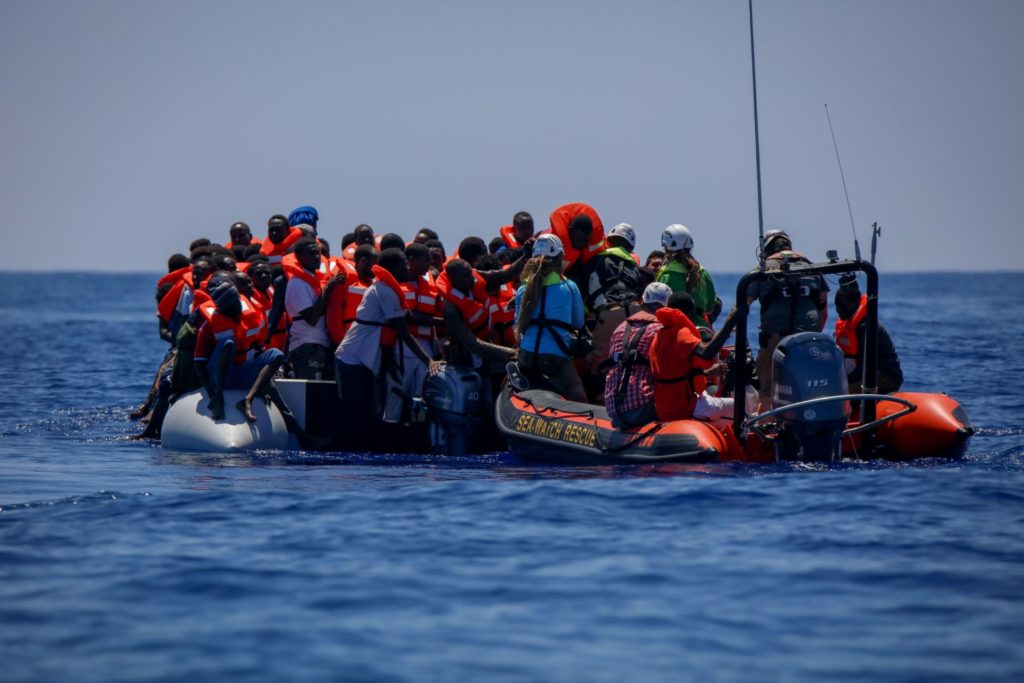Hans Leijtens, a senior Dutch official and former commander of the military police in The Netherlands, was recently appointed to executive director of the European Border and Coastguard Agency (Frontex).
At a joint press conference in Brussels on Thursday with European Home Affairs Commissioner Ylva Johansson, he outlined his management concept. Acknowledging the challenges ahead, he underlined the need to restore trust in Frontex and deliver tangible results in its main task defending EUs external borders.
“We need to move forward to upgrade how the agency works and enhance its legitimacy,” he said at the press conference. He will be guided by three principles: accountability, respect for fundamental rights and transparency.
He was appointed last December after the agency had been managed temporarily by an interim director after its former executive director had resigned with immediate effect in April 2022.
As previously reported, the Commission did not comment then on the reasons for his resignation but it was clear that he had been forced to resign after the European Anti-Fraud Office (OLAF) had started an investigation into alleged pushbacks of migrants seeking asylum in EU member states and other internal irregularities at the agency.
The European Parliament lost its trust in the former director already in December 2020 after a hearing at the Civil Liberties Committee (Liber) about pushbacks by the Greek coast guard with the tacit agreement of seconded Frontex staff. Furthermore, in June 2021, the European Court of Auditors (ECA) published a critical audit report about the management of Frontex.
At the time of the on-going audit and the allegations of pushbacks of migrants, the Commission continued to express its full trust in the agency after it had been cleared in an internal investigation. Leijtens served during that period as a member of the management board of Frontex.
Asked by The Brussels Times about what went wrong in Frontex, Leijtens replied that it was a matter of professional culture and attitudes. “Frontex has a history of taking on a defensive attitude but that should be past time. You need to be accountable. We are going to restore trust by being very transparent about what we are doing and how we are doing it.”
There should be absolutely nothing to hide. Frontex will be receptive to information and complaints, he added. “We cannot do our job if we aren’t trusted.”
Commissioner Johansson, who presented Leijtens at the press conference, admitted that Frontex has been through a difficult time and that trust and confidence in the agency, both among its own staff and with regard to its stakeholders, must be rebuilt. Leijtens is well suited for the task, she said, and added that the Commission has high expectations for him.
As examples of challenges, she mentioned the increase in smuggling of drugs via the port of Antwerp, the increase of irregular migrants that do not qualify for international protection and the low return rate of migrants that have been denied asylum in EU member states.
The best way to deal with these problems is to adopt the Pact on Migration and Asylum which was presented by the Commission in September 2020. Many of its files have already been finalized and she hoped that her home country Sweden will start trilateral negotiations (trilogues) between the EU institutions on the remaining files during its EU presidency.
A pressing issue is the plight of refugees in Libyan detention camps and EU’s cooperation with the Libyan coast guard in returning migrants who are trying to reach EU’s shores. For Leijtens, it was too early to comment on this but he underlined that pushbacks are illegal and forbidden. He will ensure that Frontex staff do not participate in anything like this.
Johansson on her part underlined that the situation in Libya is unacceptable. The EU is working with the UN in moving the refugees from Libya to other countries. The first priority is to prevent people from embarking on dangerous journeys across the Mediterranean Sea and to save lives.
M. Apelblat
The Brussels Times

